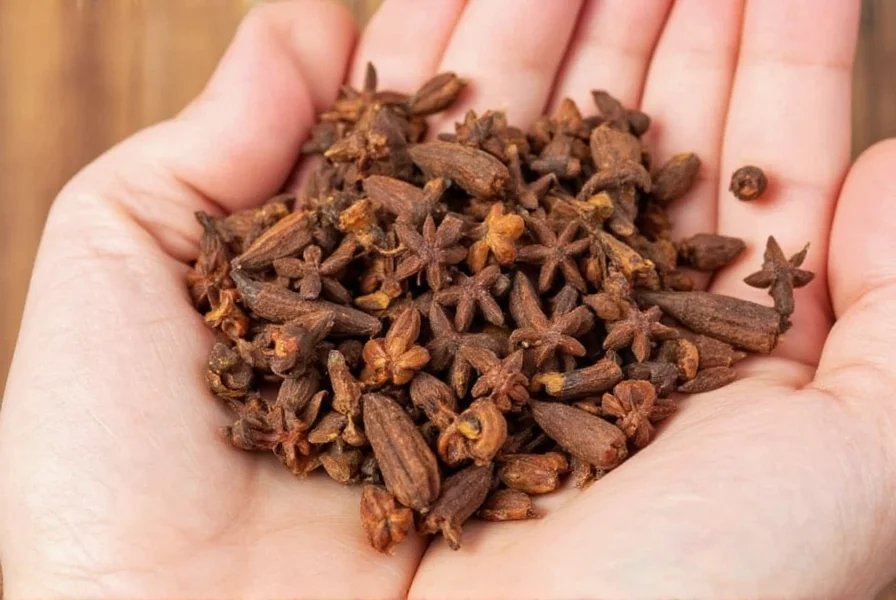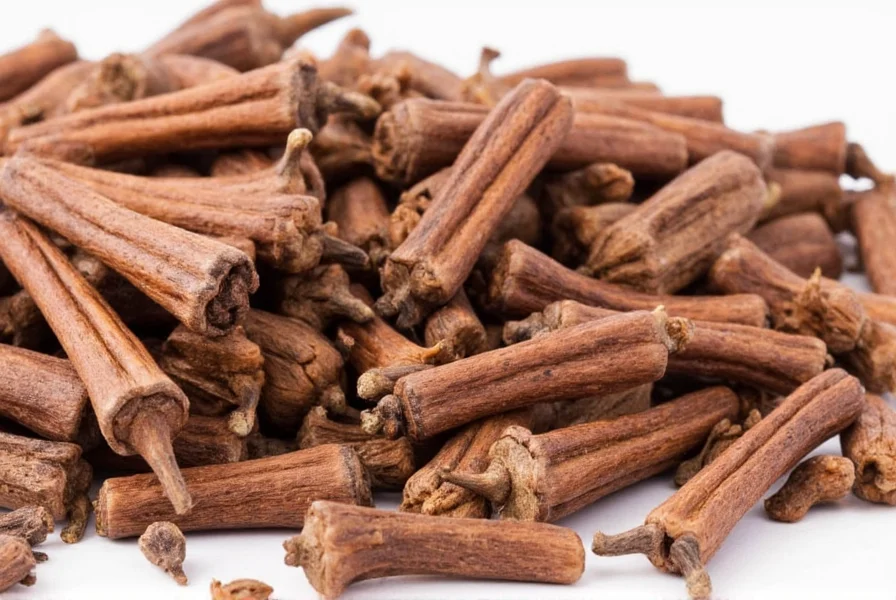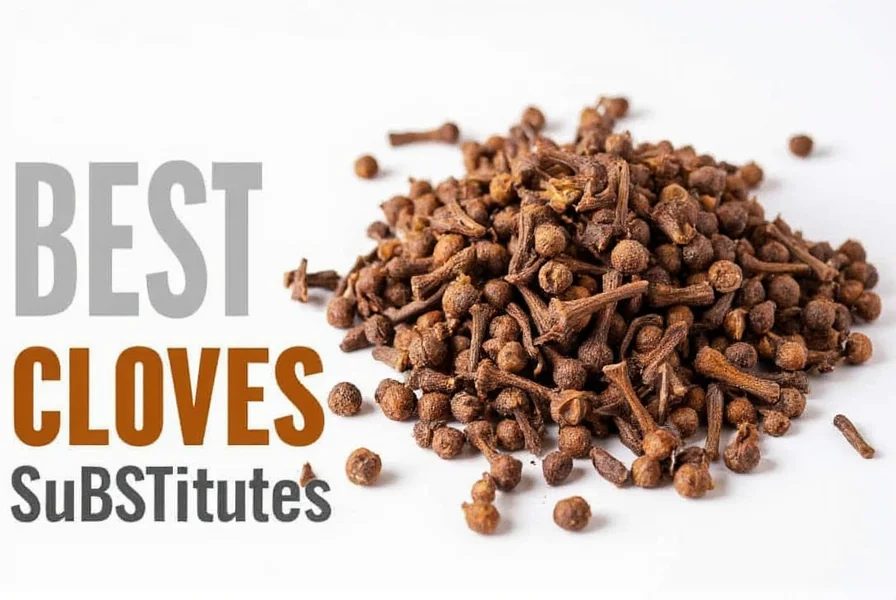The best substitutes for cloves are allspice (use 1/2 teaspoon for every 1 teaspoon of cloves), cinnamon (use 1 teaspoon for every 2 teaspoons of cloves), and nutmeg (use 1/4 teaspoon for every 3/4 teaspoon of cloves). For baking, pumpkin pie spice works well as a 1:1 replacement, while star anise or cardamom can substitute in savory dishes. Remember that cloves have a uniquely strong, warm, and slightly sweet flavor due to their high eugenol content, so no substitute is perfect—but these alternatives work effectively in most recipes when used in proper ratios.
When you're in the middle of preparing a recipe and realize you've run out of cloves, knowing reliable cloves substitute options becomes essential. This comprehensive guide provides professional culinary insights into effective alternatives that maintain your dish's integrity without compromising flavor. Whether you're baking holiday cookies or preparing a savory stew, understanding proper substitution ratios and flavor profiles ensures your cooking remains successful.
Understanding Cloves' Unique Flavor Profile
Cloves possess a distinctive warm, sweet, and slightly peppery flavor with strong aromatic properties. Their high eugenol content (approximately 70-90%) creates that signature pungent warmth that's difficult to replicate exactly. This compound also gives cloves their natural analgesic properties, explaining their historical use in dental remedies. When seeking a cloves alternative, you're essentially looking for ingredients that can mimic this complex flavor profile while maintaining the appropriate intensity for your specific recipe.

Top Cloves Substitutes with Precise Ratios
Not all substitutes work equally well in every application. The right choice depends on whether you're preparing sweet or savory dishes, and the prominence of cloves in your recipe. Here's a detailed comparison of the most effective cloves replacement options:
| Substitute | Ratio (to replace 1 tsp cloves) | Best For | Limitations |
|---|---|---|---|
| Allspice | 1/2 tsp | Baking, mulled wines, savory stews | Slightly fruitier notes; use less than cloves |
| Cinnamon | 1 tsp | Baked goods, rice pudding, apple dishes | Sweeter, less pungent; combine with nutmeg for better match |
| Nutmeg | 1/4 tsp | Custards, creamy sauces, mashed potatoes | Milder; works best combined with cinnamon |
| Cardamom | 1/2 tsp | Indian curries, Scandinavian baking | Citrus notes differ significantly from cloves |
| Star Anise | 1/2 tsp ground | Chinese five-spice dishes, braised meats | Strong licorice flavor; use sparingly |
| Pumpkin Pie Spice | 1 tsp | Pies, cakes, muffins | Pre-blended; milder overall flavor |
Substitution Guidelines by Recipe Type
Successful cloves substitution requires understanding how different dishes utilize this potent spice. Here's how to choose the best cloves substitute based on your specific cooking application:
Baking and Desserts
For sweet applications like gingerbread, pumpkin pie, or fruit compotes, allspice provides the closest flavor match. When substituting cloves in baking recipes, remember that dry ingredients incorporate spices differently than wet mixtures. For delicate cakes and cookies, use 1/4 teaspoon of nutmeg combined with 1/4 teaspoon of cinnamon per teaspoon of cloves called for. This cloves alternative blend mimics both the warmth and sweetness while preventing overpowering bitterness.
Savory Dishes and Main Courses
In savory applications like braised meats, curries, or pickling solutions, star anise makes an excellent cloves replacement due to its similar intensity. For Indian dishes specifically, cardamom works better as a cloves substitute than in Western recipes. When preparing meat dishes that call for whole cloves (like ham with cloves), consider using allspice berries instead—they have a similar appearance and can be removed after cooking.
Beverages and Mulled Drinks
For mulled wine, cider, or chai tea, cinnamon sticks combined with a pinch of nutmeg create the most authentic cloves substitute experience. The key is to add these spices early in the heating process to allow proper infusion. When making hot beverages that require cloves, remember that ground substitutes work better than whole spices for quick infusions.
Creating Custom Clove Substitute Blends
For the most accurate cloves replacement, consider making your own spice blend. Professional chefs often use these combinations when cloves aren't available:
- Basic Clove Substitute: 1/2 tsp allspice + 1/4 tsp cinnamon + pinch of nutmeg (replaces 1 tsp cloves)
- Sweet Recipe Blend: 1/2 tsp pumpkin pie spice + 1/8 tsp cinnamon (replaces 1 tsp cloves)
- Savory Dish Alternative: 1/2 tsp allspice + 1/4 tsp star anise (replaces 1 tsp cloves)
Store any unused blend in an airtight container away from light for up to three months. Remember that freshly ground spices provide significantly better flavor than pre-ground alternatives when creating your cloves substitute mixtures.
When Not to Substitute Cloves
While these cloves replacement options work well in most situations, certain recipes rely so heavily on cloves' unique chemical composition that substitution significantly alters the final product. Traditional speculaas cookies, certain Indian biryanis, and classic pickling recipes for beet eggs should ideally use actual cloves. In these cases, consider making a special trip to obtain cloves rather than compromising the dish's authenticity.

Expert Tips for Successful Substitution
Professional chefs recommend these techniques when using cloves substitutes:
- Add substitute spices gradually, tasting as you go—most alternatives require less quantity than cloves
- For whole clove replacements in roasts or hams, use whole allspice berries which have similar appearance
- In baking, add substitute spices to dry ingredients first for even distribution
- When substituting in pickling solutions, add the alternative spices at the same stage you would cloves
- For mulled beverages, add substitute spices 5 minutes earlier than you would cloves











 浙公网安备
33010002000092号
浙公网安备
33010002000092号 浙B2-20120091-4
浙B2-20120091-4